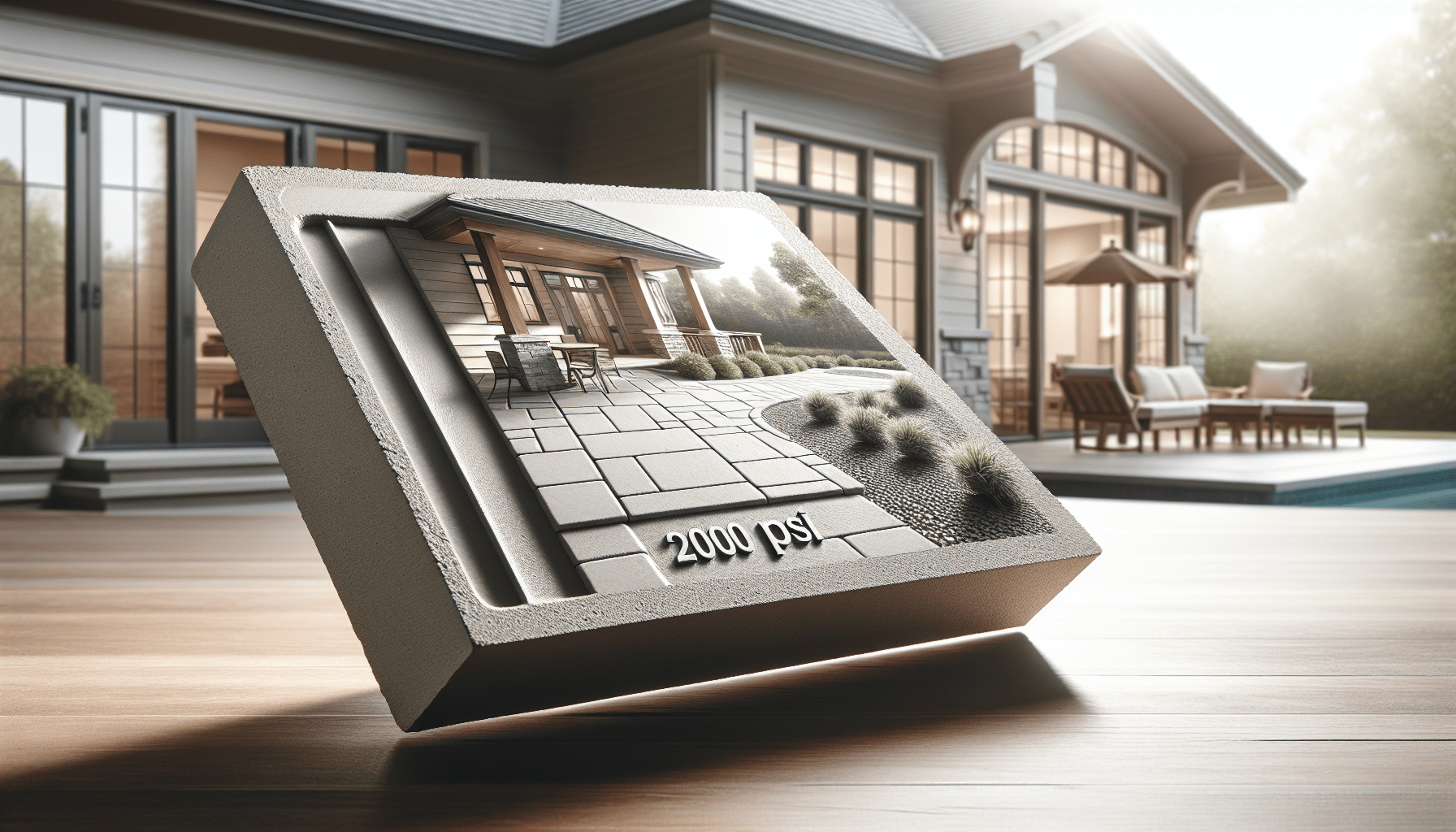Hey there! Have you ever wondered what exactly 2000 PSI concrete is used for? Well, you’re in luck because this article will explore the various applications of 2000 PSI concrete and why it is chosen over other types of concrete for certain projects. Whether you’re a DIY enthusiast or a construction professional, understanding the uses of 2000 PSI concrete can help you make informed decisions for your next project. Let’s dive in and discover the versatility and benefits of this specific concrete mix! What Is 2000 PSI Concrete Used For?
What is 2000 PSI concrete used for?
Introduction to 2000 PSI Concrete
When it comes to construction projects, there are different types of concrete mixes available, each with its own unique properties and uses. 2000 PSI concrete is one of the lower strength mixes available, but it still has several applications in the construction industry.
Residential Applications
In residential construction, 2000 PSI concrete is commonly used for projects that do not require high strength. This includes applications such as:
- Sidewalks: 2000 PSI concrete can be used to pour sidewalks in residential areas where foot traffic is low to moderate.
- Patios: For backyard patios where the concrete will not be subjected to heavy loads, 2000 PSI concrete can be a cost-effective option.
- Driveways: In areas where vehicles will not be driving or parking frequently, 2000 PSI concrete can be used for driveways.
Commercial Applications
While 2000 PSI concrete may not be suitable for high-traffic areas or heavy-duty applications, it still has its place in commercial construction projects. Some common commercial uses include:
- Warehouse Floors: In warehouses where heavy machinery is not in use, 2000 PSI concrete can be a budget-friendly choice for flooring.
- Retail Spaces: For retail areas where only light foot traffic is expected, 2000 PSI concrete can be used for flooring.
- Storage Sheds: For outdoor storage sheds or small structures, 2000 PSI concrete can provide a durable foundation.
Industrial Applications
In industrial settings, 2000 PSI concrete may not be the first choice due to its lower strength. However, there are some applications where it can be suitable, such as:
- Utility Poles: For installations that do not require high-strength concrete, 2000 PSI mix can be used to set utility poles securely.
- Temporary Structures: In some cases, temporary structures in industrial settings can be constructed using 2000 PSI concrete due to its cost-effectiveness.
Agricultural Applications
Agricultural projects often require specific concrete mixes tailored to the needs of the industry. While 2000 PSI concrete may not be suitable for all agricultural applications, it can be used in certain cases such as:
- Animal Housing: For smaller animal housing structures such as poultry houses or small livestock shelters, 2000 PSI concrete can be used as flooring.
- Equipment Storage: In agricultural settings where heavy equipment is not stored, 2000 PSI concrete can provide a durable surface for storage areas.
Specialized Applications
Although 2000 PSI concrete is considered a lower strength mix, it can still be used in specialized applications where high strength is not a requirement. Some examples include:
- Decorative Concrete: For decorative applications such as stamped concrete or stained concrete where strength is not the primary concern, 2000 PSI mix can be used.
- DIY Projects: For DIY enthusiasts looking to tackle small projects such as garden paths or outdoor steps, 2000 PSI concrete can be a user-friendly option.
Advantages of Using 2000 PSI Concrete
While 2000 PSI concrete may not be suitable for all construction projects, there are several advantages to using this lower strength mix:
-
Cost-Effective: 2000 PSI concrete is typically more affordable than higher strength mixes, making it a budget-friendly option for projects that do not require high strength.
-
Easy to Work With: Due to its lower strength, 2000 PSI concrete is easier to mix, pour, and finish, making it ideal for DIY projects or small-scale construction.
-
Faster Setting Time: In some cases, 2000 PSI concrete can have a faster setting time compared to higher strength mixes, allowing for quicker completion of projects.
-
Sufficient Strength for Some Applications: While 2000 PSI concrete may not be suitable for heavy-duty applications, it can provide sufficient strength for certain residential, commercial, and agricultural projects.
Disadvantages of Using 2000 PSI Concrete
Despite its advantages, there are some limitations to using 2000 PSI concrete that should be considered:
-
Low Strength: The primary drawback of 2000 PSI concrete is its low strength, which makes it unsuitable for applications that require high durability or load-bearing capacity.
-
Limited Applications: Due to its lower strength, 2000 PSI concrete is not suitable for high-traffic areas, heavy machinery, or structural elements that require higher strength mixes.
-
Potential for Cracking: 2000 PSI concrete may be more prone to cracking or wearing over time compared to higher strength mixes, especially in areas with frequent use or heavy loads.
-
Not Suitable for All Climates: In regions with extreme weather conditions, 2000 PSI concrete may not provide sufficient durability or longevity, as it may be more susceptible to damage.
Conclusion
In conclusion, 2000 PSI concrete has its place in the construction industry for projects that do not require high strength or durability. While it may not be suitable for all applications, this lower strength mix can be a cost-effective option for residential, commercial, agricultural, and specialized projects. By understanding the advantages and limitations of 2000 PSI concrete, you can determine whether it is the right choice for your next construction project. Remember to always consult with a professional concrete contractor to ensure that you select the right mix for your specific needs.
